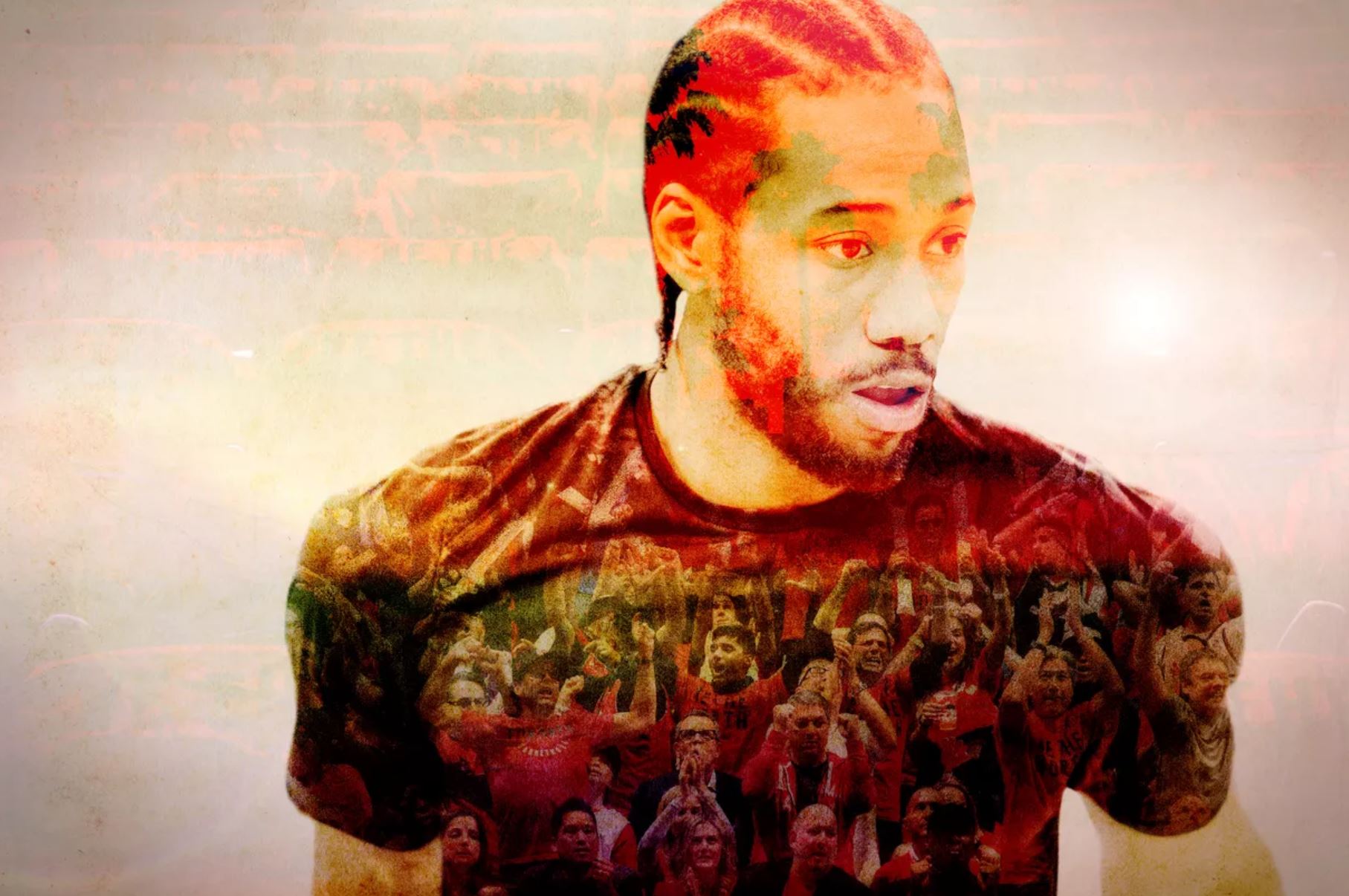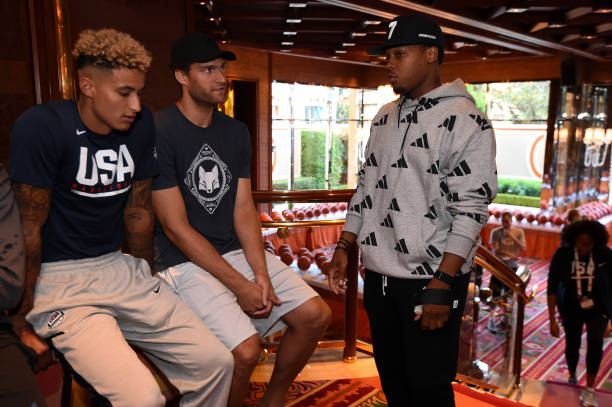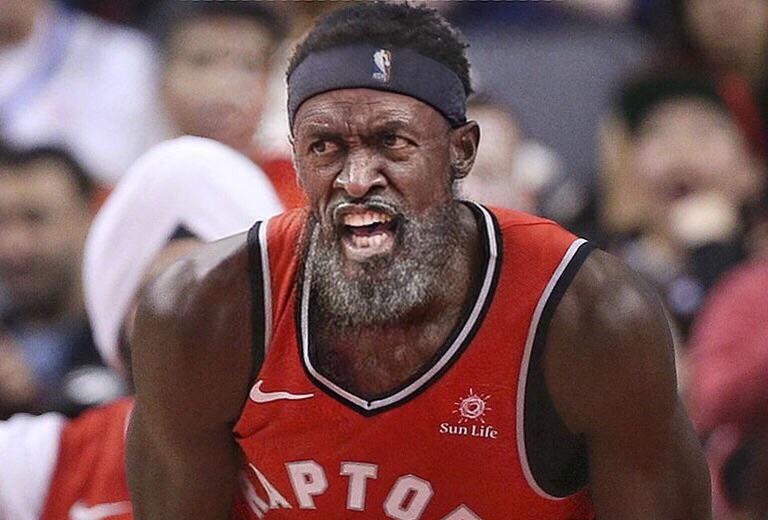The Toronto Raptors exist in a unique NBA market. They are the only NBA team outside of the United States, giving them the support of an entire country and the slogan “We The North” (despite being further south than Portland and Minnesota). They are outsiders that for the majority of their existence have been considered an unattractive destination with a lacklustre culture, but have more recently developed into one of the more interesting NBA destinations. The Toronto basketball market the Raptors currently exist in shares many of the same characteristics of the NBA’s biggest markets: a population in the millions, a diehard fanbase, a winning culture, a smart front office, and a modern city with plenty of marketing opportunities and a fantastic food scene. But Toronto still isn’t a big NBA market or a destination market and has never in its history been able to land premier free agents.
We are in the midst of the player empowerment era, where star NBA players have more power than ever before and player movement is on the rise. Players are forcing their way to specific destinations with several years remaining on their contracts, and more often than not those destinations tend to be the biggest markets in the NBA. Superstars are signing shorter contracts in order to have increased freedom to make the next move. Rosters are turning over with increased speed and fandom is shifting away from team loyalty towards player loyalty.
There is also more and more talk about increasing player freedom in the next CBA and giving players more opportunity to choose where they want to work in the same way most professionals do (this idea is talked about extensively on a recent episode of The Full 48, which I highly recommend listening to). Although it looks like the draft will be around for the foreseeable future, there could be loosened restrictions to free agency and more players could turn down their qualifying offer in order to enter free agency sooner. There will also likely be more and more trade requests like the ones made by Paul George and Anthony Davis as star players have more power than ever before to dictate their preferred destination.
What does all of this mean for the Toronto Raptors? It’s a loaded question, and an especially unlikely and emotional one after the Raptors just won their first championship and weeks later lost their best player (who also happens to be arguably the best player in the world) to the Los Angeles Clippers. But the Raptors have never relied on free agency to win, and they built a championship roster through the draft and trade market. Does the future hold more of the same for the Raptors? Will increased player movement benefit the Raptors now that they have a championship culture in a growing market? Is it possible they will be able to keep a core of players around long enough that they develop a chemistry rarely found in the modern NBA like that of the 2014 San Antonio Spurs? Or will the opposite happen, whereby the Raptors lose more and more players to the biggest markets through trade requests and free agency?
In order to guess what the future holds, we must speculate about what the modern NBA player wants. But it’s hard to speculate about what the desires of the modern NBA player, partly because it’s wrong to assume all modern NBA players are the same, and partly because modern NBA players tend to be complicated.
Despite the complexities that come with speculating about the future, one recent trend has become increasingly clear: Winning isn’t everything for a lot of marquee free agents. Kawhi Leonard chose the Clippers instead of returning to a proven championship core in Toronto. Kevin Durant chose Brooklyn instead of running it back with the Warriors. LeBron James chose the Lakers in a clear lifestyle over basketball decision. Even Jimmy Butler, who doesn’t yet have a ring, chose the Miami Heat over the much better-situated Philadelphia 76ers. There are a number of reasons for players to choose a destination including family, lifestyle, roster construction, front office, and market size, but we are learning that winning isn’t everything for a lot of star players (especially those who already have a ring).
So before we go any further it makes sense to explore some of the reasons players base decisions around and see where Toronto ranks. In terms of choosing a destination in order to be closer to home and play in front of family and friends, which is the route Leonard took in going to Southern California, Toronto is an intriguing market. More and more Canadian players are entering the NBA and many of them are from the Greater Toronto Area. Will some of those Canadians prefer to play in Toronto down the road? Could the Raptors become Canada’s team in the true sense of the word? It seems reasonable to suspect so, especially considering Masai Ujiri’s international presence and player preference. Even so, that shift could still take years to develop. However, the new head coach of Canada Basketball is Nick Nurse, and with big names like Jamal Murray, R.J. Barrett, and Shai Gilgeous-Alexander beginning to show their NBA potential, it could be sooner than we think that star Canadians start to express a desire to play closer to home.
What about lifestyle? Part of the reason players are increasingly choosing the biggest markets like Los Angeles and New York (and even Miami) is because they can not only live an enjoyable life in those locations but can also further develop their personal brand with increased opportunity. The biggest thing going against Toronto is and will always be the weather. It’s cold. But it’s also cold in New York in the winter, and basketball players generally don’t have that much time to spend outside during the basketball season anyways. Aside from the weather, Toronto is an objectively great city with a passionate fan base, a diverse population, and plenty of opportunities to strengthen brands; just ask Kawhi.
“I don’t think Toronto is far off from (how Durant viewed Golden State as a destination to win championships and take care of his investments) in how players can look at Toronto like that,” said Randy Osei, an experienced NBA player manager and CEO of Rozaay Management. “We just won a title, and there’s tons of opportunities for entrepreneurial athletes that want to build their career off the court.”
Toronto is also growing both in terms of population and basketball fandom, as immigrants and their children are more likely to play and watch basketball than they are a sport like hockey (which is more expensive and harder to play). Toronto still doesn’t have a film scene comparable to that of L.A. or the media opportunities that exist in New York, but it has all those things on a more Canadian scale and is not too far behind when it comes to lifestyle and opportunity.
(one interesting note I have thought about since the 2016 election: When will the political situation in America become so bad that select players prefer to play and live in Canada? If, for example, Donald Trump gets re-elected in 2020 after four years of behaviour that goes against the ethics of most NBA players, will that matter so much to some players that they prefer to temporarily leave America? It might be labelled as the easy way out by some pundits, but it would also be a major political statement. It’s unlikely that many players would choose to leave their native country in order to play in Canada, but it only takes one for it to become a thing).
In terms of roster construction and a front office worthy of joining, the Raptors rank near the top of the league for the foreseeable future. In Pascal Siakam, OG Anunoby, and Fred VanVleet (and all their future first-round draft picks), the Raptors have one of the better young cores in the league. In Siakam they have a legitimate two-way star who could play alongside almost any type of player in most systems. The front office, led by president Ujiri, is one of the most well respected in the NBA, having just built a championship roster without a lottery pick. The Raptors are also highly regarded for their player development, including their G League team the Raptors 905, and developing players are starting to consider that aspect of the Raptors when making free agency decisions. With the Raptors projecting to have a flexible cap sheet in 2020 and beyond, giving them significant room to sign free agents for the first time since Ujiri took over in 2013, it will be interesting to see if the Raptors can sell their exciting young core, proven front office, and organizational culture to free agents.
It would reason to suspect they would. Despite recent marquee free agents not necessarily prioritizing winning, they did prioritize smart, well-respected front offices. For example, Leonard chose the Clippers over the Lakers and KD and Kyrie Irving chose the Nets over the Knicks. Obviously, both the Clippers and Nets exist in the biggest basketball markets in the world, but they also won out over more flashy and recognizable competition because they have proven to be smart and stable franchises that can build a competitive team. The same can be said about the Raptors, who have gone a step further and will now hang a championship banner. Future free agents should be impressed by the Raptors 2019 NBA championship and the roster construction that got them there. Who’s to say Ujiri can’t do it again?
The Raptors were hard done by the Leonard situation and the increased player empowerment that led to it, but they don’t seem to be worried. Where other teams could have filed tampering cases to the league in hopes of getting some return for Leonard or complained publicly, the Raptors sat still. They know exactly who they are and are confident about the franchise and market they have helped build. Whether that confidence comes from a belief that they will be able to land marquee free agents in the future or not remains to be seen.
The next couple of summers will be a test to see if unique markets like the Raptors can win in free agency. If not — and if only the biggest markets like New York and L.A. continue to win in free agency — then the Raptors will just have to do it the way they always have. And the next CBA negotiations will be very interesting.



